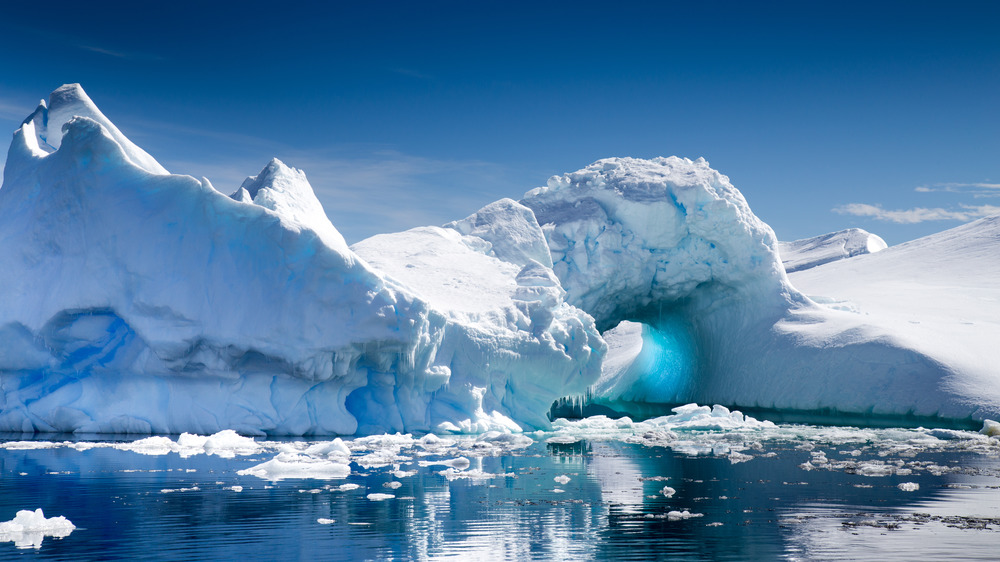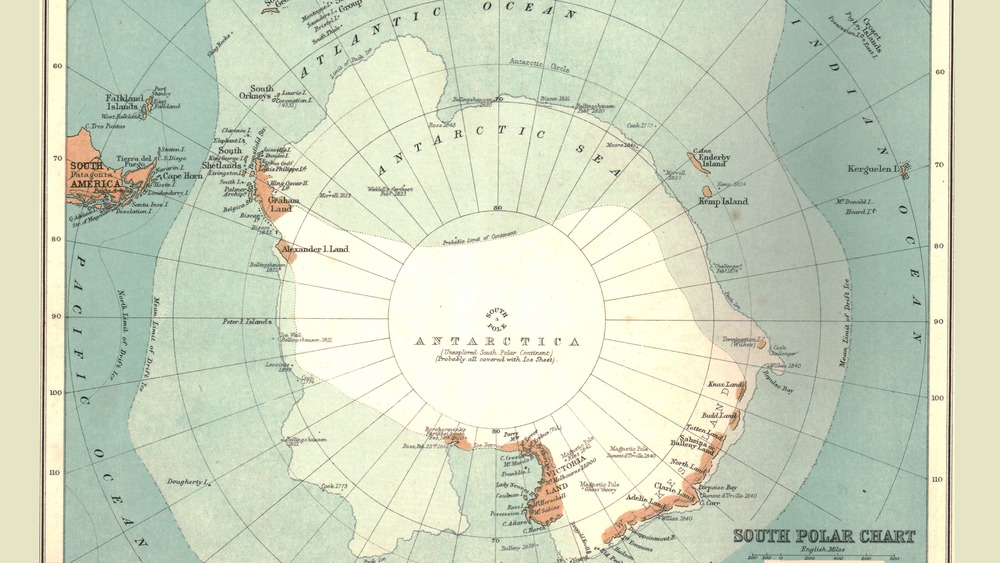The Skull That Altered Antarctica's History
The frosted, frozen, snow-flurried fabric of Antarctica remains one of Earth's lasting mysteries. Similar to the bottom of the ocean, where sunken cities, lost machines, and a host of still-undiscovered species (per Bookings Nigeria) can be found, the far-flung, craggy, Antarctic continent begs to be explored. Its miles-thick snow layer, shielding the ground beneath it for the past 12 million years (per the BBC), all but promises untold secrets if only we had the tenacity and wherewithal to divulge them.
Some Antarctic enigmas, though, aren't entrapped in snow and ice. In 1985, a woman's skull was found just lying on Yamana Beach at Cape Shirreff in Antarctica's South Shetland Islands, as Daily Galaxy recounts. Unlike other, less substantiated claims of secret Nazi bases (per Newshub), or artificially constructed, even potentially alien-made Antarctic pyramids, this particular find is far more mundane, and also far more relevant. The skull was identified as belonging to an indigenous Chilean woman in her early 20s and was dated to sometime between 1819 and 1825. Her femur bone was found nearby, near remnants of a sealer camp (folks who hunt seals), although this is a bit strange because women usually didn't engage in sealing at that time. There's no other evidence at the site — documents, identifying markers, artifacts, etc. — to provide any context for this person's tale or demise.
In the end, though, it's not this one person's story that's caused international nervousness and contention, but rather the geopolitical power plays that the skull signifies.
The skull could signify an era of conflict and Antarctic land grabs
In case you thought that humans were done with colonially racing to pieces of ground, planting flags, and saying, "mine!" like first-graders in a playground, well... nope.
Aside from Antarctica being largely inaccessible and difficult to research, you might be wondering why nations haven't already thrown down their gauntlets and declared dominance over the continent by way of lots of bullets and vigorous chest-thumping. This is because the 12 countries who had been conducting research in Antarctica signed the Antarctic Treaty System of 1959, readable on the Secretariat of the Antarctic Treaty website. This treaty put the overlapping territorial claims of seven nations — Argentina, Australia, Chile, France, New Zealand, Norway, and the U.K. — on hold.
An environmental protection protocol was added in 1998, per the BBC, stating that Antarctica is designated as a "natural reserve, devoted to peace and science." This means that "mining and resource extraction" is strictly prohibited. Exasperatingly, this protocol was written to last only 50 years and expires in 2048. In turn, many are afraid that countries — China and Russia, specifically — will begin a mad dash to exploit Antarctic resources. Given climate change and rising sea levels (the continent has already lost 4 million metric tons of ice since the mid-1990s, per Scientific American), such actions could greatly compound impending ecological catastrophes.
And the Chilean skull? It could become just another pawn in a foolish power game to lay claim to Earth's last unconsumed continent.

